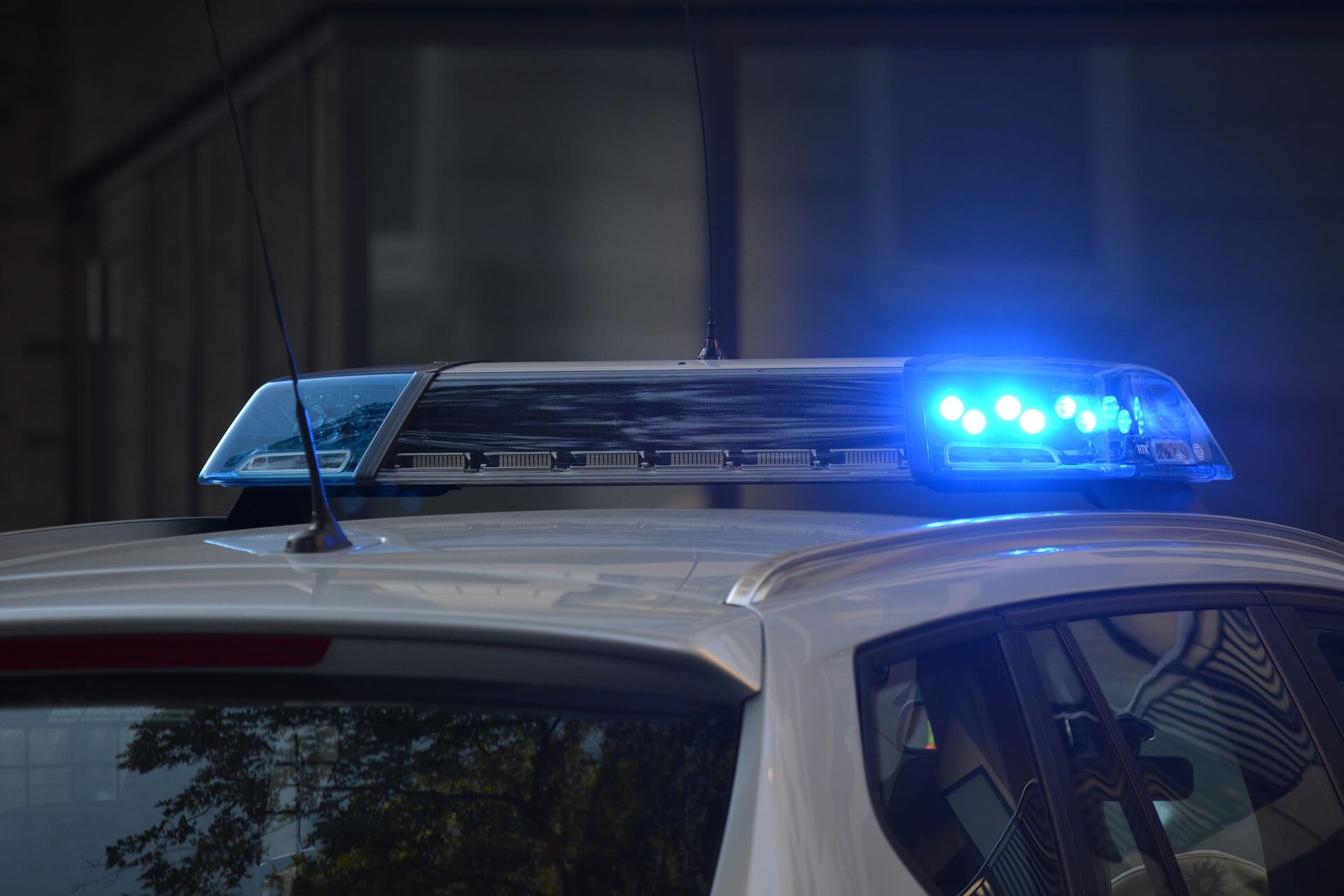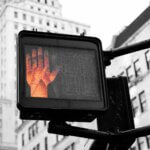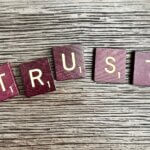The past couple of weeks have been an emotional and mental whirlwind as I navigate the aftermath of unexpectedly putting myself in the crosshairs of a rabid racist. I have been writing about race and racism in Maine and beyond since 2003, and while there have been times when I have written pieces where I fully expected blowback and harassment, the piece I wrote earlier this month for Maine Morning Star was not one of them.
Honestly, as I get older, after two decades of anti-racism writing and work, I am less interested in public attention, good or bad. My work has become a lot less visible in a world where racial justice content creators have become a thing. Instead, my work is writing and on running Community Change Inc., with a side of training offerings and groups that I run. My work is far more relational and I am more concerned about using my decades of experience both in the nonprofit sector and anti-racism world to nurture and nourish the next generation in this work.
That said, if the fight comes to my door, I am not interested in surrendering or running. As Emiliano Zapata said, “It is better to die on your feet than to live on your knees.” If I were ever to get into tattoos, I might actually consider getting that phrase inked on my body, because it is how I live and what I believe.
Which is why, after being contacted by the founder of the New England White Network and then being served a heaping serving of vile racist emails through my work email, I chose to go public. Evil thrives in darkness and it should always be exposed. As I have said before, these people thrive and get off on the fear they create. They create fear and chaos, but in this country, we have been here before. The historical backlash or, shall we say, whitelash to Black and brown people’s advancement is historical.
It’s also why anti-racism work is not without risks. How many Black people in this country have lost their lives fighting for freedom and justice? Far more than just the ones we honor.
While technology allows us to sit comfortably in our homes and advocate for justice, it doesn’t mean that things can’t and won’t escalate. Especially if we are picking the right hornet nest.
I fear that too many people interested in anti-racism work come to the work without understanding that it carries risks. Thus, when the attacks occur, people are caught off guard—they are unprepared and, too often, ready to seek assistance from the very same systems of white supremacy that we should be seeking to dismantle.
In the last couple of weeks, since going public with my story, I have had countless numbers of people reach out to express solidarity and support, and to also ask if I have contacted the police so they can solve the problem?
I received my first death threat in 2003, early in my writing career at the now defunct Portland Phoenix. The threat was sent to the Portland Phoenix office and my then-editor reached out to contact the local police on my behalf. You know what happened? Nothing.
Over the years, as my writing grew, so did the hateful messages in my inbox.
My experience with law enforcement was that while these messages are unsettling and scary, in most cases absolutely nothing will happen. The only time that the police actually did something when I encountered racial hate was in the summer of 2019 when I encountered a physical confrontation that also disrupted white people’s lives.
This occurred when a visitor to my island told the bartender at the local island watering hole to throw me out after overhearing a conversation where I was talking about my work. Unbeknownst to the visitor, I was an island resident and the bartender was a personal friend.
In the end, he was booted from the bar for his vile racism, but fueled up on booze and racism, he returned with what was speculated was the intention to cause me bodily harm. The bartender, sensing something wasn’t quite right, asked me to stay until she closed and, in the end, she closed early and the man was beating on the doors. The police were called and he called me a string of n-words and other obscenities—to which the police told me point blank they could not arrest him for any of that. That pesky freedom of speech thing, though verbal assault with violent intent is a crime—just not one the police like to deal with.
However, hell hath no fury like a racist white man being told to calm down and. as luck would have it, the visitor decided to swing on the cops. For which he was promptly arrested. While you can call Black women ni**ers all day, you cannot swing on law enforcement without repercussions.
The visitor ended up getting a ride on the fireboat to the mainland and an overnight stay to the county jail.
Unfortunately for him, when he got his one call and asked his wife to bail him out, she called the realty office they were renting from to figure out how to bail him out. Well, gossip travels fast on a barrier island, especially when it was discovered that the reason he was in jail was for initially verbally assaulting one of the island’s most well-known Black residents.
In the end they lost their vacation rental and when she bailed him out, he was escorted by the local police to get his belongings and to leave the island. Turns out this visiting racist was from Florida and worked in the schools and, well, this little blog has a powerful reach with many media connections far beyond Maine and New England. Last I heard, his job was in jeopardy. He learned that racism on vacation comes at a price.
That has been the only time that calling law enforcement due to racism has worked out in my favor, and it only worked because of a perfect storm—namely the racist deciding to hit a cop.
Not even a year later, I was receiving unnerving emails from someone who appeared to be stalking me and the police were not useful or helpful in the slightest.
Given the historical role of police as slave catchers, am I surprised that today’s police don’t see much of a crime in receiving vile racist emails? Especially because our Constitution, that document crafted by our founding fathers—many of whom owned people who look like me—allows for freedom of speech. Unless one explicitly threatens me, it isn’t a crime—it’s a “nuisance”—though honestly I’m not confident the police would do anything if someone openly threatened to kill me. Remember, I’ve had death threats before. But in the end, this verbal and written abuse is a way to stoke fear and hope that I may back down.
We also have to consider the fact that there are far too many in law enforcement who are happy to unhold white supremacy. To be blunt, in many police departments across the country, cops are actively involved in white supremacy activities. This is not a hidden secret; it is a well-known and established fact.
Which means as anti-racists, we cannot look to the police to save us. It is one of the reasons that despite being a staunch anti-racist, I am not anti-gun.
I don’t feel comfortable calling myself an abolitionist, I have heavy abolitionist leanings, as well as a personally complicated relationship to law enforcement. Having a Dad who was in law enforcement colors my views, knowing that law enforcement was also a pathway to the middle class for some Black folks. As far as the Second Amendment and the right to bear arms, I am surprisingly down for it, except that I do not believe in the types of guns that have become commonplace in mass shootings. I also think gun ownership needs a few more restrictions and requirements. OK, a lot more. However, as a Black woman living in a white state doing work that makes me a target, I am a lot more comfortable trusting myself with my personal safety than hoping a cop will do it for me.
In the ideal world, perhaps the police would take my safety seriously. But this isn’t an ideal world and, as a result, I don’t take them seriously. What’s a dead loudmouth ni**er to the cops? I hope to never know personally.
I share all this to say that as anti-racists, it is imperative that we understand that we cannot be anti-racists while expecting the oppressive structures of a white supremacist culture to be our friends. How does that make sense? Especially when we are talking about the safety of Black and brown people and other marginalized people who are on the frontlines or trenches of this work.
Instead, we need deeper relationships—relationships that allow us to offer care and support to people when they are under attack. Last week, a friend gave me a night away from home in a place where I always feel safe. It was a wonderful night of sleep.
Deeper relationships and connections allow us to ask people what they need to feel safe and do our best to provide it. Personally, when I am being attacked, I often don’t have the bandwidth for things like cooking/eating. I am sure I am not alone in this. Offer up meals or gift cards to make sure activists are nourished. Offer rides or errands. While I live on a literal island and typically feel safe, it is when I have to head to the mainland that I get worried.
A few days ago, I encountered a white man standing a little close to me at the ferry terminal and definitely had a minute of wondering if he recognized me and was going to harm me.
While kind words matter, so do our actions. We need to develop support networks in our respective communities that BIPOC folks feel safe reaching out to, when they need support. As well as making sure BIPOC people doing this work are not siloed away from other BIPOC folks. Here in Maine, where I live, due the large rural nature of this state, it is easy to be working in a community as a Black person or person of color and not be connected to other BIPOC folks in the work.
One of the reasons I created The Black Girl in Maine site back in 2008 was to connect with other Black and brown folks in both the state of Maine and New England more broadly. My initial intention was not to create a platform that would provide anti-racism education to white people but to be a place of connection for BIPOC folks. I even tried to elevate the platform to carry other voices of color in the region. For long time readers, you may recall when there were other regular contributing writers of color, including Samuel James, who was a staff writer. Sadly, we never received the financial support to sustain that mission, and now it’s just me. At the same time, right wing media which helps to fuel racist attacks is well-funded. The threats are not going to stop, I could shut down this site today, step down from my position at Community Change Inc., and try to become an anonymous middle-aged Black woman, and racism is still going to be a part of my life. It’s still going to be the foundation of our country and, frankly, Western civilization. Or we can mature in our anti-racism work and start thinking on multiple levels—locally, regionally, and globally—bringing direct action and advocacy as well as behind-the-scenes support and mutual aid. No matter what though, we must remember that we save us. Not the systems of white supremacy.
If this piece resonated with you, please consider a tip, or become a monthly patron, if you aren’t already. I offer my work freely, to ensure that it is accessible to all but if you have the means to support it, please do so. Remember, I do work with groups and organizations, if you want to work with me, please reach out for details.




